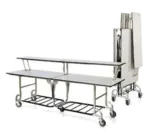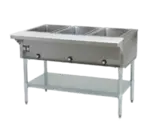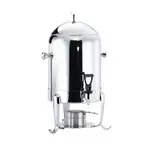
Catering Marketing: Crafting a Winning Strategy for Your Catering Business
The catering industry is a vibrant and competitive space where the quality of your food and service is paramount. However, even the best caterers need more than just culinary skills to succeed. In today's market, effective marketing strategies are essential to stand out, attract clients, and grow your business. Whether you're a seasoned catering professional or just starting, understanding and implementing smart marketing for catering can be the difference between a thriving business and one that struggles. This article will guide you through various catering marketing ideas, digital strategies, and how to develop a comprehensive marketing plan for your catering business.
Understanding the Importance of Marketing for Catering
Marketing for catering is not just about advertising your services; it's about building a brand that resonates with your target audience. The catering industry is unique because it is highly personalized—every event is different, and clients often seek something special and memorable. Thus, your marketing efforts need to reflect the personal touch and excellence you bring to your events.
Developing a Catering Marketing Plan

A successful catering marketing plan begins with a clear understanding of your business goals, target audience, and the competitive landscape. Here’s a step-by-step approach to creating an effective marketing plan for your catering business:
- Define Your Unique Selling Proposition (USP): What sets your catering service apart from others? Whether it's a unique cuisine, exceptional customer service, or eco-friendly practices, your USP should be at the heart of your marketing strategy. Identify what makes your catering business unique and leverage that in your marketing communications.
- Identify Your Target Market: Who are your ideal clients? Are you targeting corporate events, weddings, private parties, or all of the above? Understanding your audience allows you to tailor your marketing messages to their specific needs and preferences.
- Conduct a Competitor Analysis: Analyze your competitors to understand their strengths and weaknesses. This will help you identify opportunities to differentiate your catering business and avoid strategies that may not work in your market.
- Set Marketing Objectives: Your marketing objectives should be SMART—Specific, Measurable, Achievable, Relevant, and Time-bound. For example, you might set a goal to increase your online inquiries by 20% within six months through targeted digital marketing campaigns.
- Choose Your Marketing Channels: Based on your target audience, decide which marketing channels will be most effective. Traditional methods like word-of-mouth and print advertising might still work, but digital marketing for catering is becoming increasingly important.
- Create a Marketing Budget: Determine how much you are willing to invest in your marketing efforts. Allocate your budget across different channels based on expected ROI, and be prepared to adjust as you track the effectiveness of your campaigns.
Digital Marketing for Catering: Essential Strategies

In the modern business landscape, digital marketing is no longer optional—it's essential. Here are some key digital marketing strategies that can help your catering business thrive:
- Website Optimization: Your website is often the first point of contact between you and potential clients. Ensure that your website is professional, easy to navigate, and mobile-friendly. Include high-quality images of your dishes and events, customer testimonials, and clear calls to action, such as inquiry forms or contact information.
- Search Engine Optimization (SEO): SEO is crucial for improving your website's visibility on search engines like Google. Use relevant keywords (e.g., catering marketing, catering services in [your location]) in your website content, meta descriptions, and blog posts. Consider local SEO strategies to attract clients in your area by optimizing your Google My Business profile and gathering positive reviews.
- Content Marketing: Content marketing involves creating valuable and relevant content to attract and engage your target audience. Start a blog on your website where you share catering tips, recipe ideas, and case studies of successful events. This not only positions you as an expert in the field but also helps with SEO.
- Social Media Marketing: Social media platforms like Instagram, Facebook, and Pinterest are ideal for showcasing your culinary creations and event setups. Use these platforms to share photos and videos of your events, behind-the-scenes content, and customer testimonials. Engage with your audience through regular posts, stories, and live videos. Consider running paid social media campaigns to reach a broader audience.
- Email Marketing: Email marketing is a cost-effective way to nurture leads and keep your clients informed about your services. Send regular newsletters with updates on your offerings, special promotions, and catering tips. Use email segmentation to tailor your messages to different client groups, such as corporate clients, brides-to-be, or event planners.
- Online Reviews and Reputation Management: Positive online reviews can significantly influence potential clients' decisions. Encourage satisfied clients to leave reviews on platforms like Google, Yelp, and Facebook. Respond to all reviews—both positive and negative—in a professional manner to show that you value customer feedback.
Creative Catering Marketing Ideas
While traditional and digital marketing strategies are essential, adding a creative flair to your marketing efforts can make your catering business stand out even more. Here are some innovative catering marketing ideas to consider:
- Host Tasting Events: Organize exclusive tasting events where potential clients can sample your menu. These events can be themed to showcase your specialty dishes or to cater to specific occasions like weddings or corporate events. Use these events to collect feedback, build relationships, and generate leads.
- Collaborate with Influencers: Partner with local influencers or food bloggers who align with your brand values. Invite them to your events or send them a curated sample of your catering services. Their endorsement can introduce your business to a broader audience and lend credibility to your offerings.
- Create a Signature Dish or Experience: Develop a signature dish or a unique catering experience that becomes synonymous with your brand. This could be a special menu item, a unique presentation style, or a themed catering package. Promote this signature offering in all your marketing materials.
- Utilize Video Marketing: Video content is highly engaging and can effectively showcase your culinary skills and event setups. Create short videos that highlight your cooking process, event preparations, or client testimonials. Share these videos on your website, social media, and YouTube channel.
- Leverage User-Generated Content: Encourage your clients to share photos and videos of their events catered by you. Create a branded hashtag and ask clients to use it when posting about their experience on social media. Feature this user-generated content on your social media channels and website to build trust and authenticity.
- Offer Loyalty Programs: Implement a loyalty program where repeat clients earn rewards such as discounts on future bookings or complimentary services. This not only encourages repeat business but also fosters long-term relationships with your clients.
- Participate in Local Events and Fairs: Set up a booth at local food festivals, bridal fairs, or corporate events. These venues provide excellent exposure and opportunities to connect with potential clients. Offer samples, distribute marketing materials, and engage attendees to build brand awareness.
- Eco-Friendly Initiatives: As sustainability becomes more important to consumers, implementing eco-friendly practices can be a powerful marketing tool. Use biodegradable packaging, source local ingredients, or offer zero-waste catering options. Highlight these practices in your marketing materials to attract environmentally conscious clients.
Importance of the Right Equipment for Your Catering Business

Having the right equipment is essential for delivering exceptional catering services. From kitchen essentials to transport and serving gear, each piece of equipment plays a vital role in the smooth operation of your catering business. Investing in high-quality, durable equipment will not only improve efficiency but also elevate the overall experience for your clients and their guests.
By combining this essential equipment with a strong catering marketing plan and innovative marketing ideas, your catering business can stand out in a competitive market, offering exceptional service that keeps clients coming back.
Measuring the Success of Your Catering Marketing Plan
Once your catering marketing plan is in place, it’s crucial to track its performance. Here’s how to measure the success of your marketing efforts:
- Set Up Analytics: Use tools like Google Analytics to monitor your website traffic, user behavior, and conversion rates. Track which marketing channels are driving the most traffic and leads.
- Monitor Social Media Metrics: Pay attention to your social media engagement rates, including likes, comments, shares, and follower growth. Tools like Facebook Insights and Instagram Analytics can provide valuable data on your social media performance.
- Evaluate ROI: Calculate the return on investment (ROI) for your marketing campaigns. Compare the cost of each campaign to the revenue generated from new clients. This will help you determine which strategies are most cost-effective.
- Collect Client Feedback: Regularly ask your clients for feedback on your services and marketing efforts. This can provide insights into what’s working and where improvements are needed.
- Adjust Your Strategy: Based on the data you collect, be prepared to tweak your marketing strategies. Whether it’s increasing your budget for a high-performing channel or adjusting your messaging to better resonate with your audience, staying flexible is key to long-term success.
Conclusion
Marketing for a catering business is both an art and a science. By developing a comprehensive catering marketing plan, leveraging digital marketing strategies, and incorporating creative ideas, you can effectively promote your services, attract new clients, and grow your business. Remember, the key to successful catering marketing is consistency—continually refine your approach based on feedback and performance metrics to ensure your business stays ahead of the competition. With the right marketing strategies in place, your catering business can thrive in even the most competitive markets.





